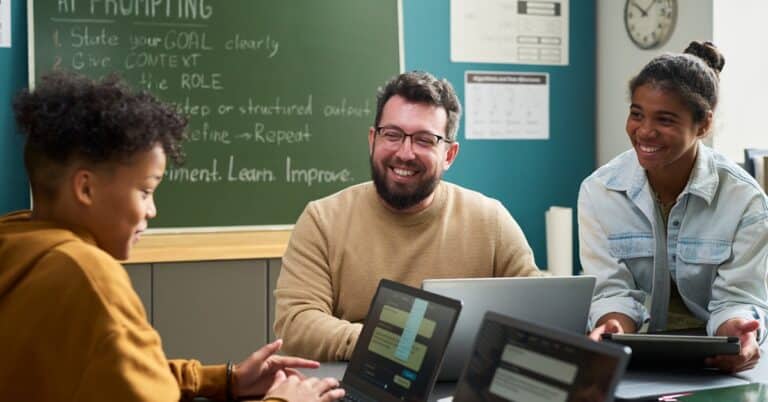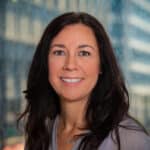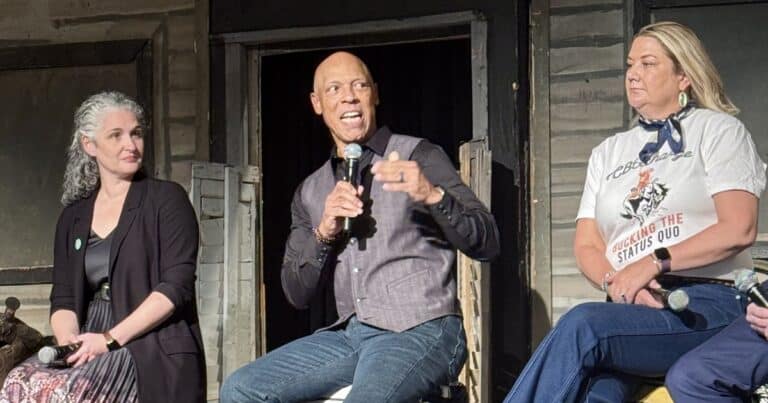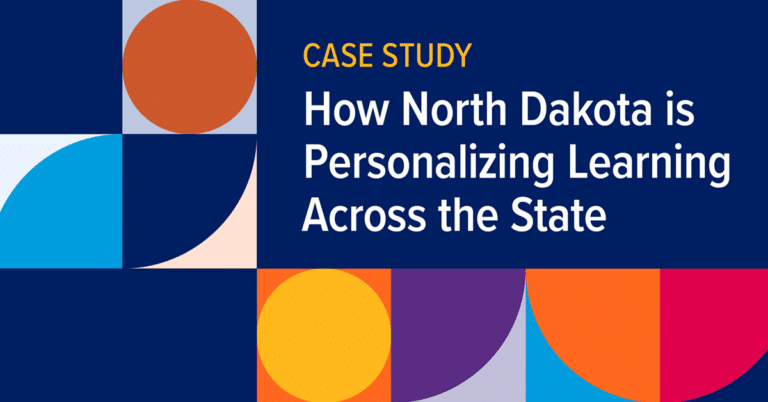When 13 educators from Kamehameha Schools Hawai’i visited Kettle Moraine School District in southeastern Wisconsin, it was 42 degrees and 31 degrees with the wind chill. The students were so excited and told their visitors how lucky they were – it was above freezing.
Educators from Kamehameha Schools were there to learn and observe and brought with them the lens they use in their own work: Ae Kai to Kahiki, which translates as, “from our water’s edge to the world.”
“Generations of our people have had to check their identity at the door. Hawaiian culture was politicized to the degree that the language couldn’t be taught in school,” said Kathy Wurdeman-Thurston, the K-12 curriculum and educator growth director at Kamehameha Schools, and one of the individuals who visited Kettle Moraine. “We’re in this unique position now to reclaim those spaces and to honor the culture that is of this place. Ae Kai to Kahiki means that your place and where you are – that’s who you are, that’s your identity. But it’s important also to seek the shores beyond your shores, to look at different perspectives from that place and bring them together. To reposition yourself in the world, knowing where you are and with those other perspectives, grow your mindset. But you always start from where you’re from.”
While there, Wurdeman-Thurston and others spent a full day speaking with Wisconsin learners and educators, hearing their stories and observing in their environments. They spent the next two days asking questions and unpacking what they’d seen and heard with Theresa Ewald, former assistant superintendent of Kettle Moraine School District, who asserted how important this kind of reflection is for shifting teaching and learning practices.
“You have to make time to make sense of what you see and hear, and align that to what you think you know,” said Ewald. Kettle Moraine has hosted many visiting educators during their partnership with KnowledgeWorks, and Ewald believes it’s just as valuable for the hosting district as it is for those visiting. “Telling your story is a powerful learning experience. It cements your why. You feel validated and you reflect on your own experience a bit more. While the people who come to see us get a whole new perspective, we get affirmation that what we’re doing is worth sharing.”
For Wurdeman-Thurston, one of the biggest takeaways from her experience at Kettle Moraine was how powerful it was to see another learning community deeply committed to equitable outcomes for every child.
“It was just so affirming to see that someone so far away has the same values,” Wurdeman-Thurston said. While their schools might look very different, they still have a lot to teach each other.
“You learn best from those who are in the same situation as you, having this responsibility to lift up the next generation,” said Wurdeman-Thurston. “There’s some credibility to learning from people who have actually gone through it, and that’s something we’re really trying to cultivate in our own environment. For so long, teachers have felt comfortable staying in their classroom, taking care of the children that they have in front of them. But when you de-privatize the practice of teaching and learning, it’s no longer about my class. It’s about a responsibility for a larger generation of children, that bigger mindset. We’re all trying to raise up the next generation.”
And that’s work we’re all in engaged in, from Wisconsin to Hawai’i.
“There were so many beautiful connections,” Ewald said of the visit. “It reinforced for me that there’s so much the same between kids across our country. Nobody’s doing this work just for the kids in their district. It’s about all kids.”
Abbie Everett, senior director of teaching and learning with KnowledgeWorks who has partnered with Kamehameha Schools and Kettle Moraine, has come to believe that Ae Kai to Kahiki provides the opportunity to not only think about where we are, but how what we are bringing creates relevancy for the world.
“Every community has a context,” said Everett. “How are we creating authentic learning experiences around cultural and community connections? What is your shore? What are you looking out to learn from?”
And when Wurdeman-Thurston explained Ae Kai to Kahiki as a lens for learning, she stressed the need not just to look out – but to consider where you are standing, too.
“The dangerous place is when you don’t position yourself in the place where you’re from, and you go out and seek other wisdom. We’ve lost so many key parts of our culture, so when we went to Kettle Moraine, we really positioned ourselves in reaffirming what we believe,” said Wurdeman-Thurston. “You look for the things that are similar to what you value, and for us so many things at Kettle Moraine were: equitable outcomes for children, for children to find their passion and purpose. We’re trying to foster that passion and purpose in children, not so they can just grow up and do what they want, but to find their unique position in their community, so they can give back.”
This was written by former Senior Manager of Communications Jillian Kuhlmann.




